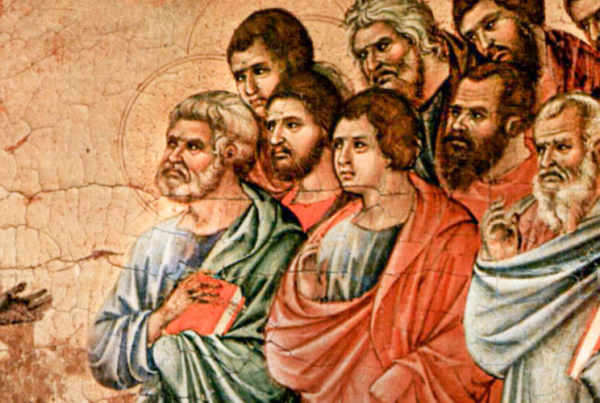
What God Is Not
Fr. Paul Stein
Have you ever tried to explain to someone, what you mean by the word “God?” Perhaps you used words like “creator” and “Father.” Today, it is challenging to explain to people what we believe as Catholics; many people assert that they don’t believe in a “supreme being.” In a sense, we as Catholics don’t believe in a “supreme being” either.
What people often mean by “supreme being” is a god like Zeus, Thor, or one of the other gods of Nordic, Greek, or Roman mythology. Such pagan gods are understood to be very much like us humans, they are just much stronger, more knowledgeable, powerful, and tend to live forever. When people see artistic images of God the Father as an “old man on a throne,” they think we Catholics believe God is such a “supreme being.” Nothing could be farther from the truth.
God is transcendent. That means that he is above and beyond the physical world. In order to create the universe, or multiverse, God has to be existentially above all that is physical. God as God, is not physical at all. He does not have a body, he does not have eyes, or ears, or sit on a throne. Those are all images that help us understand our relationship with him, but are not literal.
"God is transcendent.
That means that he is
above and beyond the
physical world."
Sometimes, because God transcends all that is physical, people describe him as a “pure spirit.” However, angels are pure spirits. Again, the image of angels having wings helps us understand that they are swift and can move about the physical universe instantaneously. However, they are not physical at all; they are pure spirit. Even we humans, who are physical because we exist bodily, also have souls. Thus, we exist in the spiritual world as well as the physical world at the same time. As the creator of angels and human souls, God must be existentially above all that which is spiritual. (A separate article will cover the subject of “God’s Spirit” and the Holy Spirit.)
So what is God? Technically speaking, we don’t exactly know. In a way, we speak about what God is, by describing what he is not.[1] He is not physical; he is not spiritual as angels and souls are spiritual. He transcends all of that.

The same is true regarding limits, power, and knowledge. The universe, while enormous at about 100 billion light years in size, is still limited in size. Angels, while impressive in power and knowledge, are still limited. Anything that is limited is finite. God, since he is not limited, is infinite. As God is not limited in power, he is omnipotent; he is all-powerful. As God is not limited in knowledge, he is omniscient; he knows all things and everything that can be known.
Time itself is his creation,[2] and thus he exists above and outside of time; he is eternal. This use of the word eternal does not mean that he merely lives forever like people think the pagan gods live, or even the “eternal” life for which we hope in heaven. As properly eternal, God is outside of all change; he is always the same. Even angels experience change, though they are not part of the experience of time in this universe. Thus, Church writers describe their existence, and human existence in heaven, as part of aeviternity. It is a type of temporality that is very different than what we experience in this universe.
What This Means For Us
What this means is that if we get to heaven, we will never be bored. If God were just the supreme being, or finite like us, we would eventually fully understand him. And then there would be no new adventures. Because God is infinite, there will always be more to God, more to understand, and more ways to grow in relationship with him. Even now, we begin that adventure in our relationship with him. He always has more for us if we open ourselves to him and his will. Our Catholic faith is quite the adventure.
Footnotes
[1] This way of understanding God is called the via negativa, or an apophatic theology. It describes God by describing what he is not.
[2] For those more versed in physics, the universe is more properly called spacetime. Time is thus considered the fourth dimension of the universe; it is constitutive of the universe and hence part of God’s creation.
FOR FURTHER READING ON THIS TOPIC




